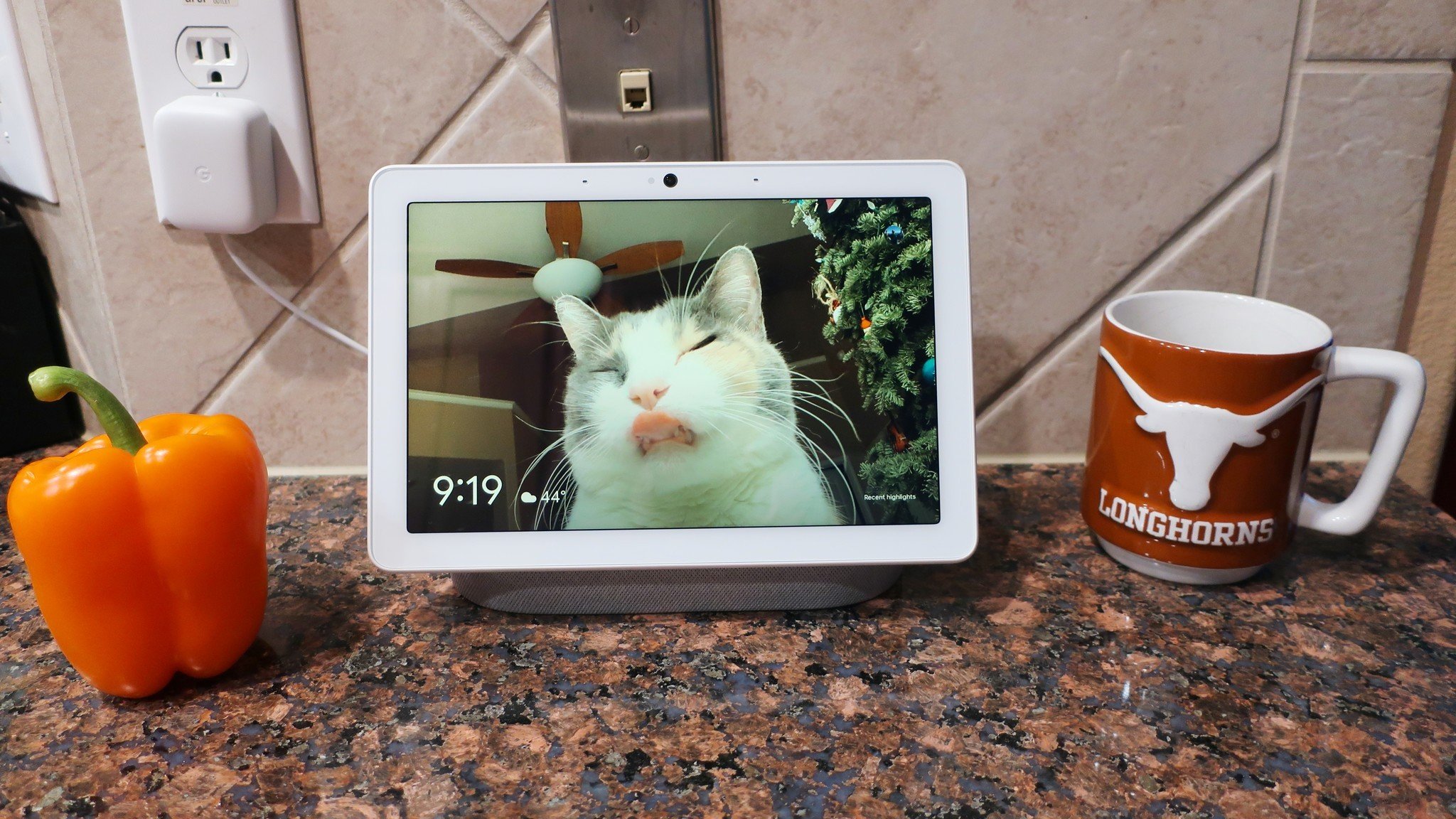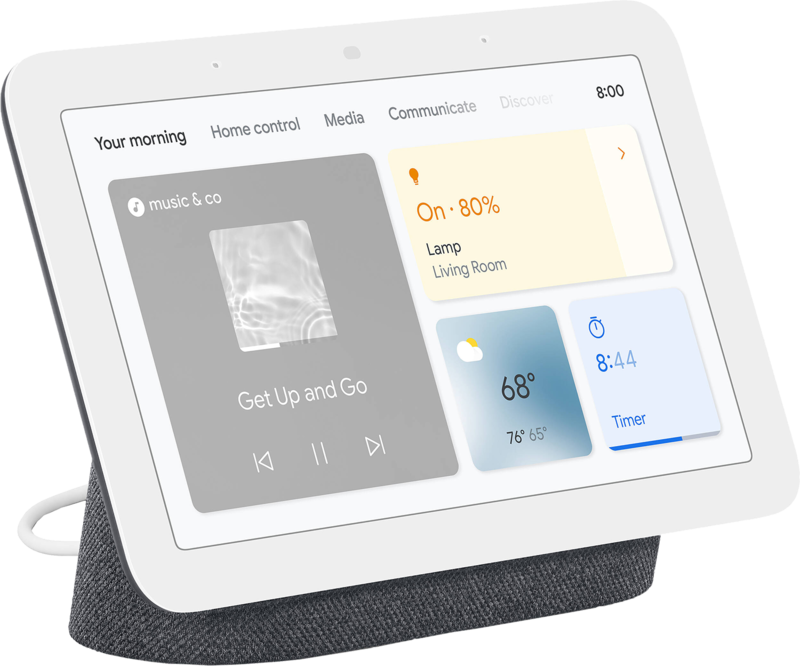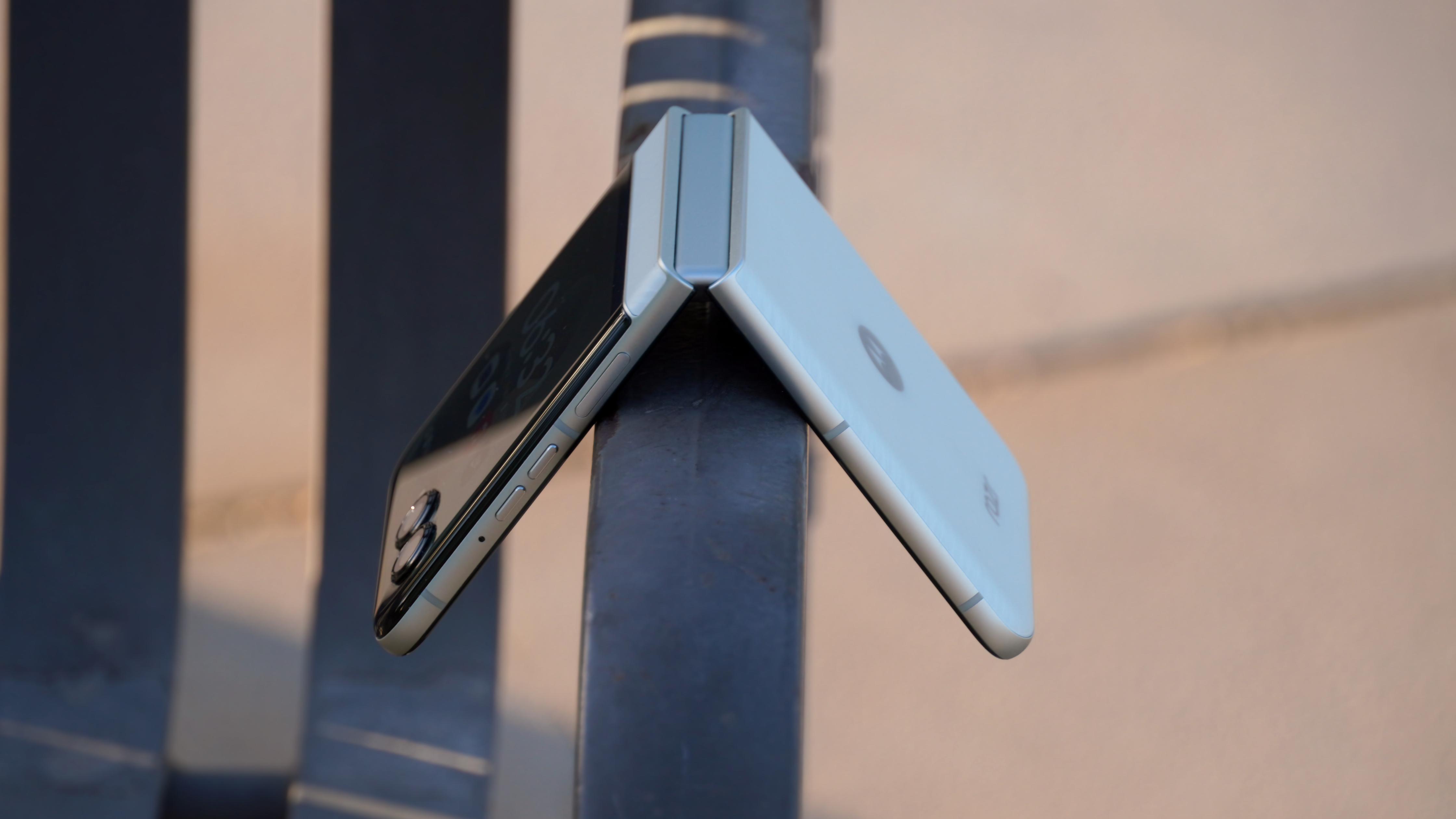Google may soon migrate the Nest Hub Max to Fuchsia OS

What you need to know
- Google has apparently begun testing Fuchsia OS internally on the Nest Hub Max.
- The smart display will be the second retail device to run the OS if it's rolled out to the public.
- It looks like the internal testing is in the final stage.
Google quietly rolled out Fuchsia OS to the first-generation Nest Hub earlier this year, though the update made no significant changes to the device's functionality. Now, it appears the same update will arrive on the Nest Hub Max in the future.
According to a comment posted to a Fuchsia code change, Google is preparing to release an update to the Nest Hub Max that will transition its current operating system from the Linux-based Cast OS to Fuchsia OS.
As spotted by 9to5Google, "dogfood" builds of the OS are currently being tested on "Sherlock," the code name for the Nest Hub Max. Google did not immediately respond to a request for comment from Android Central, but it confirmed to 9to5Google that internal testing has begun, with the latest milestone release now in version 6.
For the uninitiated, dogfood refers to the final stage of internal testing before a product is made available to the public. In the case of Fuchsia OS, Google employees who had no direct involvement in the software's development took part in the final testing phase.
It's unclear when or if Google intends to bring Fuchsia OS to the Nest Hub Max. If the public release occurs, the smart display will be the second retail device to run the OS.
Fuchsia debuted on Google's best smart displays earlier this year with little fanfare, and it was barely noticeable due to the lack of major functionality changes. The same thing is expected to happen if the OS makes its way to the Nest Hub Max.

Nest Hub (2nd Gen)
Get the latest news from Android Central, your trusted companion in the world of Android
The second-generation Nest Hub is an impressive smart display, not only for its excellent audio but also for its ability to remotely track your sleep, providing insights into what might be preventing you from getting the best sleep of your life.

Jay Bonggolto always keeps a nose for news. He has been writing about consumer tech and apps for as long as he can remember, and he has used a variety of Android phones since falling in love with Jelly Bean. Send him a direct message via X or LinkedIn.
